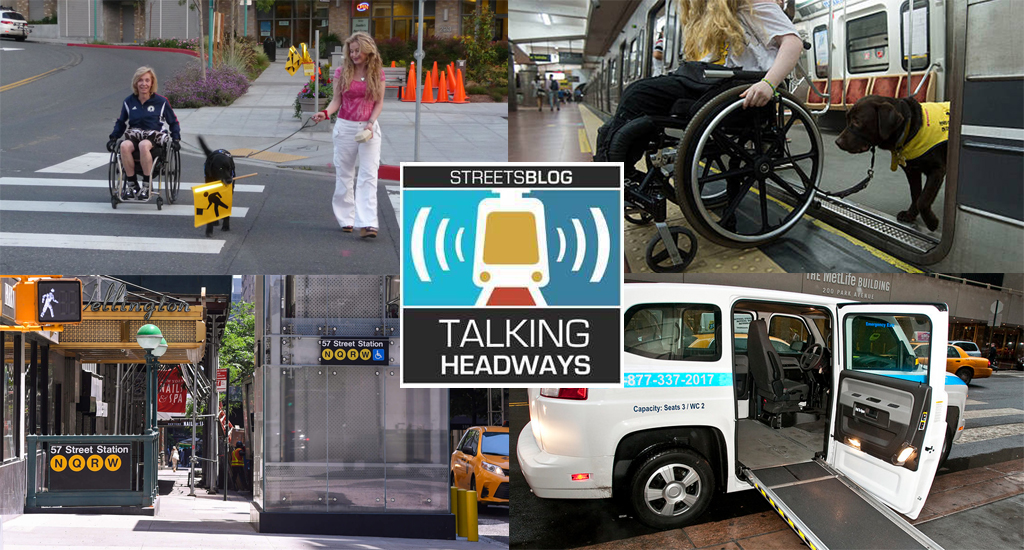This week we’re at the Mpact conference in Phoenix and joined by Ron Brooks of Accessible Avenue.
We chat about service animal etiquette, the negotiation and implementation of ADA, and including people with disabilities in the equity conversation.
You can find an unedited, AI-generated transcript of our conversation here, and an edited excerpt under the audio player below.
Jeff Wood: The other issue you brought up was cost and the doubling of a regular fare [for paratransit]. I mean, that’s really important because, you know, we talk a lot about trying to figure out how to lower fares for people and make it accessible, but that double fare just seems like somewhat of a barrier.
Ron Brooks: Let me actually take it in a slightly different direction. Sure, when the ADA was negotiated — and it was negotiated, it had to be passed through the Congress and the Senate and it had to then be signed by the President. And of course, legislation is sausage and the ADA was no exception.
When the ADA was being negotiated and finalized, there were concerns from the industry about the cost of paratransit. And given the fact that paratransit was going to be treated as a civil right, there’s no limit on the number of trips a person can take. There’s no limit on the purposes that they can take the trip for. The only lever that the industry had to have any control over demand, which was completely unknown, was cost.
So cost was negotiated and essentially a deal was made that in order to encourage people with disabilities — who ultimately are the ones who make decisions about whether or not to use paratransit — in order to encourage them to use the bus when they could, or the train or whatever was in their community, there was an agreement made to double the fare for paratransit, or to allow agencies to double the fare for paratransit. It was never equal. It was never equitable. It was negotiated.
Fast forward to 2020 and the pandemic and the George Floyd killing and all the things that came from those awful events — one of which was an awakening in our industry of the idea of equity, and that we should be providing services in a way that our customers, the people we serve, are getting comparable results from what we do.
We’ve talked about, you know, race equity, we’ve talked about equity for folks in marginalized communities. We’ve talked about folks who have limited resources and how to create equity for them. And this is really a matter of equity: It is fundamentally unfair to charge people twice as much simply because they have a disability that prevents them from being able to use the fixed route transit system. And that needs to be changed. It is fundamentally inappropriate to keep charging disabled people twice as much. And the challenge is the law allows it and paratransit is expensive, so that’s gonna be a tough sell.
But if we truly believe in equity and if we truly believe that it is wrong to charge people twice as much because they’re disabled, then we really have no choice but to take this issue on.






